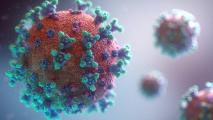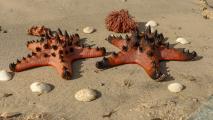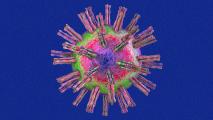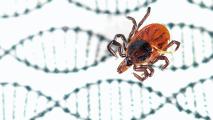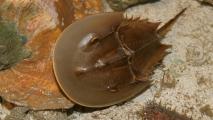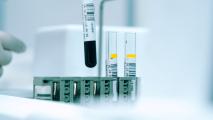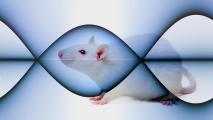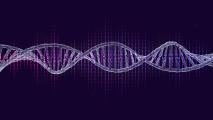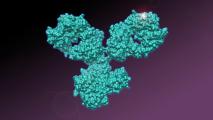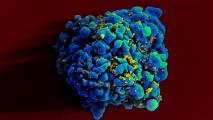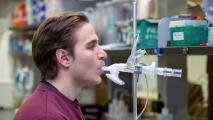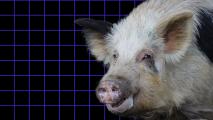
Biotech
Human history has been all but defined by death and disease, plague and pandemic. Advancements in 20th century medicine changed all of that. Now advancements in 21st century medicine promise to go even further. Could we bring about an end to disease? Reverse aging? Give hearing to the deaf and sight to the blind? The answer may be yes. And soon.
More
Despite its disastrous effects, COVID-19 offers some gifts to medicine
While it’s still too early to draw conclusions, there’s emerging evidence between autoimmune disorders and the virus that causes COVID-19.
Diamond-like starfish skeleton unlike any discovered in nature
The skeleton of the knobby starfish has a structure unlike any other found in nature so far, and it could inspire new lightweight ceramics.
Moderna is developing a herpes vaccine
Moderna is developing a herpes vaccine that could protect you against the most common sexually transmitted infection in the world.
Opioid overdose: A bioethicist explains why restricting supply may not be the right solution
Since the unpredictability of drug supply increases overdose risk, making the drug supply predictable should be part of the solution, right?
Insulin pump can be controlled with an app
A new app lets insulin pump users deliver doses remotely, making it easier to manage diabetes discretely and conveniently
Take a look at the deepest known squid, just found
NOAA scientists used an ROV to spot a ghostly cephalopod, known as a bigfin squid
We can now use CRISPR to fight tick-borne diseases
U.S. researchers have overcome a hurdle that was preventing the use of CRISPR to fight tick-borne diseases, such as Lyme disease.
Horseshoe crabs are drained for their blue blood. That practice will soon be over.
One of humanity’s strangest and most macabre activities is slowly coming to an end, a trend that every horseshoe crab should celebrate.
Golden blood: The rarest blood type in the world
Golden blood, despite sounding like medical nonsense, is actually the nickname for Rh-null, the world’s rarest blood type.
Scientists use ultrasound to control brain cells in animals
Researchers have used ultrasound to trigger the brain cells of mice with a technique called sonogenetics.
MIT invents $4 solar desalination device
MIT has developed a $4 solar desalination device that could provide a family of four with all the drinking water it needed to survive.
DNA used to make the world’s tiniest “radio”
Scientists have created the world’s smallest antenna, measuring only five nanometers in length. It is designed to decipher real-time changes in proteins and records and transmits data via light signals.
Mutation protecting against Alzheimer’s edited into human cells
Scientists have used CRISPR to edit the “Icelandic mutation,” which protects carriers against Alzheimer’s, into human cells.
First gene therapy for Tay-Sachs disease successfully given to two children
After 14 years in development, gene therapy has helped two children surpassed their life expectations and live seizure-free.
New antibody treatment against Omicron gets emergency approval
A new monoclonal antibody treatment effective against Omicron has received emergency authorization weeks after two others were banned.
Why calorie restriction may be the key to a healthier life
A new study suggests that people appear to benefit from a moderate calorie restriction the same way we know many animals do.
First woman cured of HIV through stem cell transplant
A woman has been cured of HIV through a transplant of umbilical cord blood, which is easier to match to patients than bone marrow.
Inhaled vaccine for coronavirus moves to human trials
An inhaled vaccine now moving into human trials could protect people from more than just the coronavirus that causes COVID-19.
New breed of pig will provide organs for human transplantation
German researchers are breeding a new type of pig that’s been genetically modified to have organs ideal for human transplantation.
Get inspired with the most innovative stories shaping the world around us.













